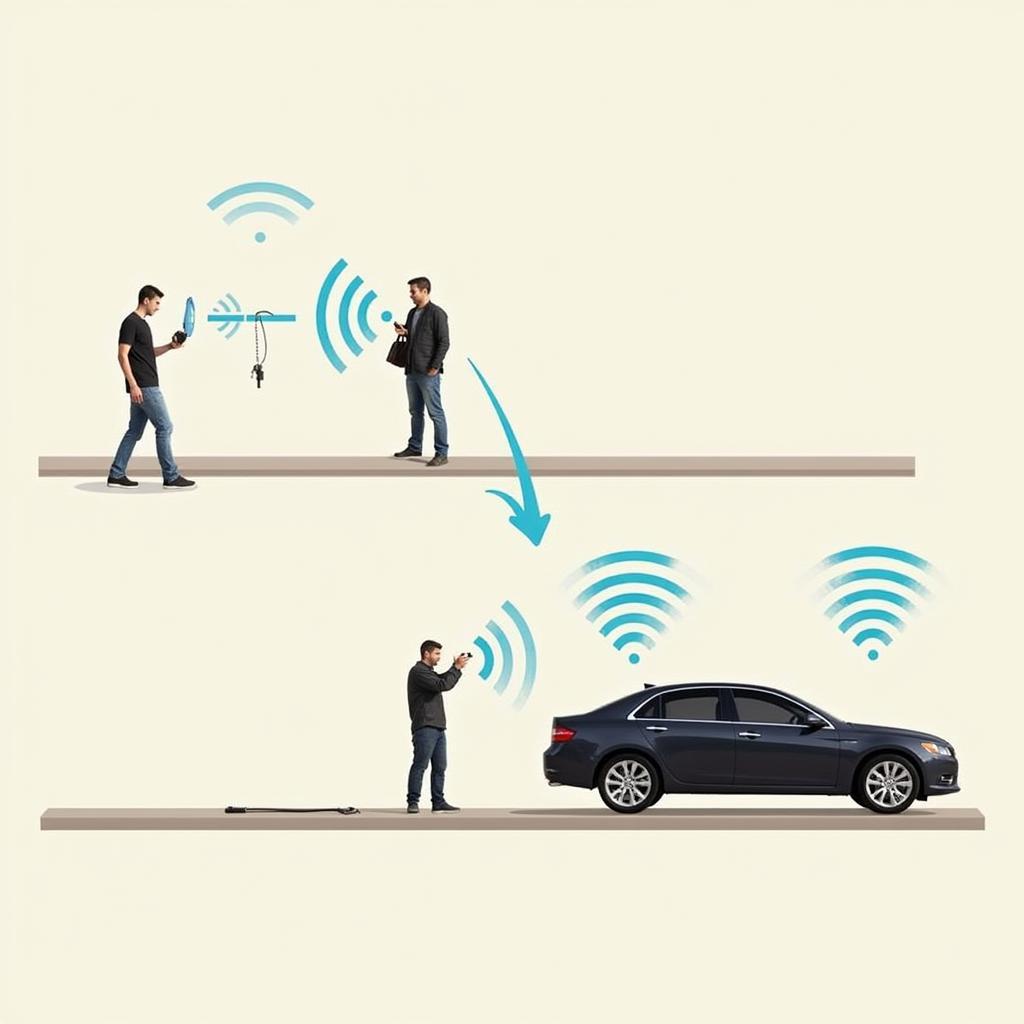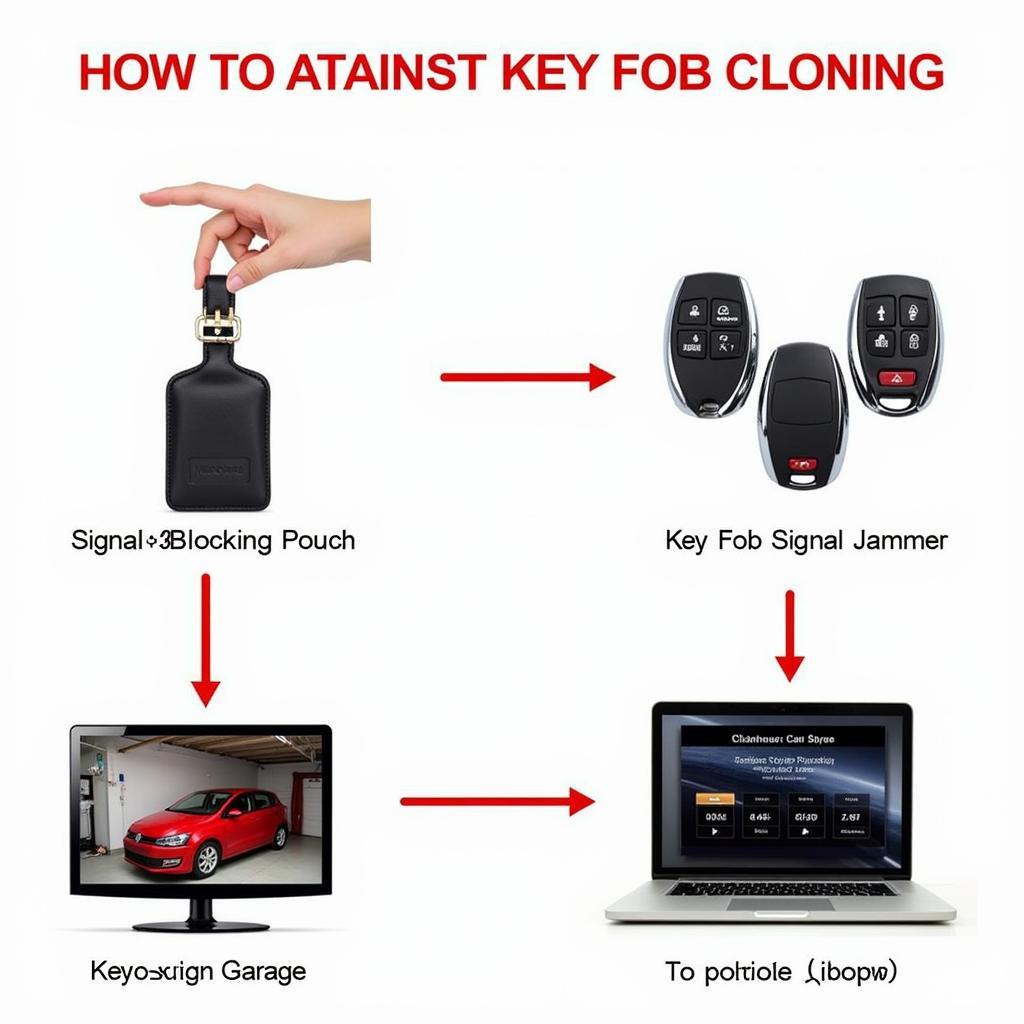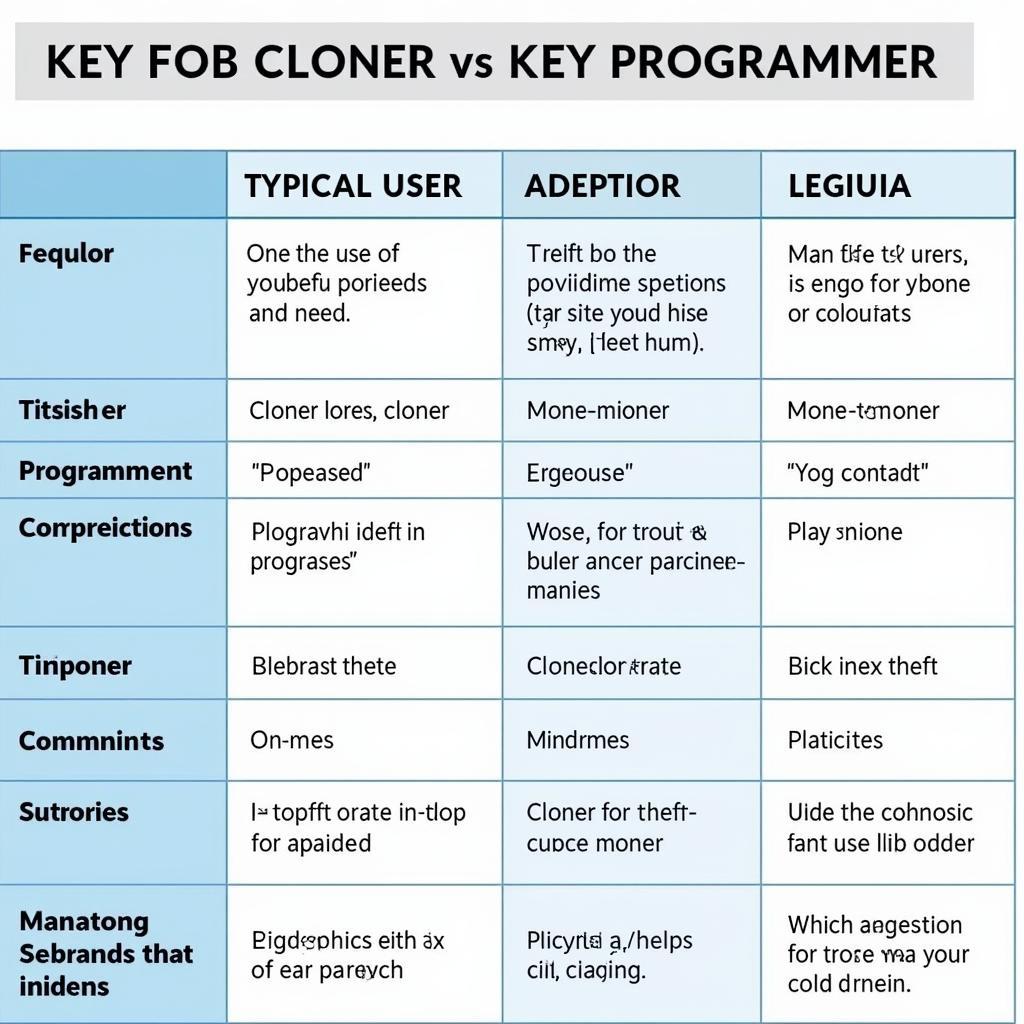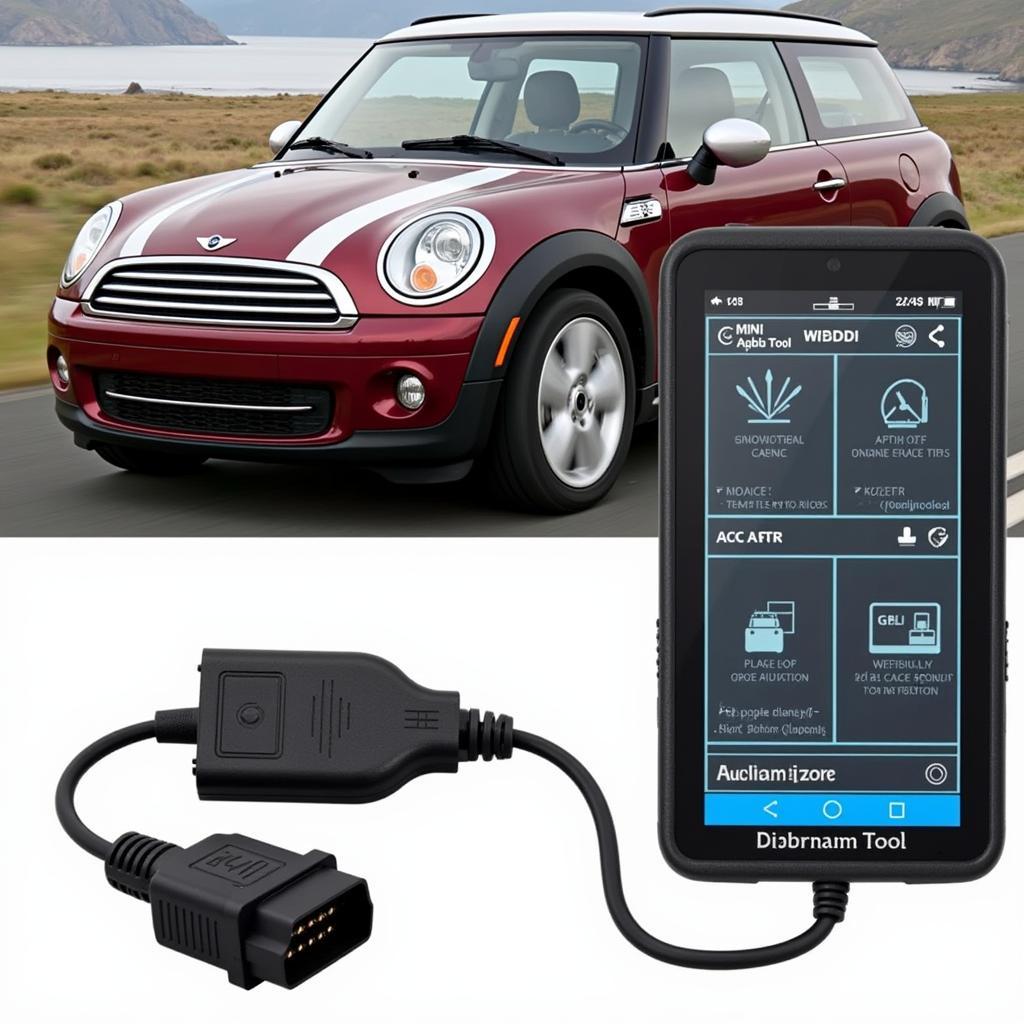Key fob cloning has become a topic of increasing interest, raising concerns about car security and the potential for theft. Understanding how these devices work, their legality, and the steps you can take to protect yourself is crucial in today’s digital age. This article will delve into the intricacies of key fob cloners, exploring their functionality, the legal implications of their use, and practical advice for safeguarding your vehicle.
How Does a Key Fob Cloner Work?
Key fobs utilize radio frequencies to communicate with your car’s locking system. A key fob cloner intercepts and copies these signals, allowing a thief to unlock and even start your vehicle without the original key. These devices can range from simple signal grabbers to more sophisticated software-defined radios that can decode and replicate the unique code transmitted by your key fob. The process typically involves two individuals, one to intercept the signal near the owner and another to relay the captured code to a device near the targeted vehicle. This relayed signal then tricks the car into thinking the legitimate key is present. Some advanced cloners can even save copied codes for later use, posing a significant security threat.
 Key Fob Cloning Process
Key Fob Cloning Process
The Legality of Key Fob Cloning: A Grey Area
While owning a key fob cloner isn’t necessarily illegal in all jurisdictions, using one to steal a car certainly is. The legal implications vary depending on the specific laws of your region and the intended use of the device. Many places have laws prohibiting the possession of devices designed for unauthorized access to vehicles. Even if ownership is permissible, using a key fob cloner to gain unauthorized access to a vehicle constitutes a crime and can lead to severe penalties. Furthermore, using a cloner to circumvent security measures like immobilizers can result in additional charges. It’s crucial to research and understand the specific laws in your area regarding key fob cloners and their usage.
“The laws surrounding key fob cloning are complex,” says automotive security expert, Dr. James Carter. “While the devices themselves might not be illegal to own in some cases, using them for illicit purposes is a serious offense.”
Protecting Yourself from Key Fob Cloning
With the rise of key fob cloning, protecting your vehicle is more critical than ever. Several effective methods can help safeguard your car from these sophisticated attacks.
- Signal Blocking Pouches: These pouches are designed to block the radio frequencies emitted by your key fob, preventing thieves from capturing and cloning the signal.
- Key Fob Signal Jammers: While less common, these devices can disrupt the signals used by cloners, making it difficult for them to capture your key fob’s unique code.
- Enhanced Car Security Systems: Consider upgrading your car’s security system with features like advanced immobilizers or motion detectors that can deter potential thieves.
- Parking in Secure Locations: Parking in well-lit, secure areas can significantly reduce the risk of theft.
- Regular Software Updates: Ensure your car’s software is up-to-date, as manufacturers often release updates to patch security vulnerabilities.
 Key Fob Protection Methods
Key Fob Protection Methods
Key Fob Cloner Detection: Is It Possible?
Detecting whether your key fob has been cloned can be challenging. There aren’t any readily available tools or methods for the average car owner to definitively determine if their key fob has been compromised. Suspicious activity around your car, such as unexplained unlocking or starting attempts, could indicate a cloning attempt. If you suspect your key fob has been cloned, consult a qualified automotive security specialist for advice and assistance.
“While detecting key fob cloning directly is difficult, staying vigilant about your car’s security is paramount,” advises Ms. Sarah Miller, a leading cybersecurity consultant specializing in automotive systems. “Pay attention to any unusual activity and take appropriate steps to enhance your vehicle’s security.”
Key Fob Cloner vs. Key Programmer: Understanding the Difference
It’s important to distinguish between a key fob cloner and a key programmer. A key fob cloner copies the existing signal from a key fob, while a key programmer is used to program a new key fob to work with a specific vehicle. Key programmers are legitimate tools used by locksmiths and dealerships, whereas key fob cloners are frequently associated with illicit activities.
 Key Fob Cloner vs. Key Programmer
Key Fob Cloner vs. Key Programmer
In conclusion, key fob cloning poses a serious threat to vehicle security. Understanding how these devices work, the legal implications of their use, and the preventative measures you can take is crucial for protecting your car. By staying informed and implementing the recommended security measures, you can significantly reduce the risk of becoming a victim of key fob cloning. Don’t hesitate to seek professional advice if you suspect your key fob has been compromised or if you have concerns about your car’s security.


